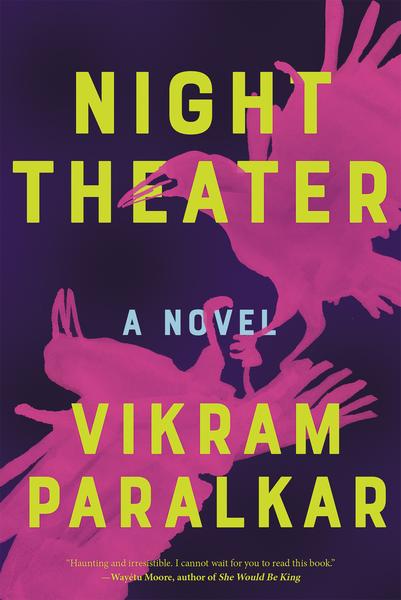
In rural India, Doctor Saheb and his loyal pharmacist struggle to keep a small practice afloat. They face the impossible task of keeping their office sterile with only limited resources, barely enough to service the community, let alone keep the natural world at bay. The operating theater needs to be regularly fumigated to keep the roaches out. Doctor Saheb has begun to grow weary of the constant pendulum swing between being the only surgeon serving an entire village and the lack of support from the bureaucrats in the government. His hair is graying and his patience is thinning. It is after a long day of administering the few polio drops he’s been given to the village children that he receives visitors that have arrived just before closing: a man who claims to be a teacher, his pregnant wife, and their young son. Despite Doctor Saheb’s dismissal of them, they claim to have an emergency that cannot wait, and one that can’t be spoken of in public. It isn’t until they display their wounds to him that he understands that this situation is not a garden-variety malady that can wait until morning. With the wounds this family has, they should not be alive. The teacher explains, as best he can, that they are the living dead, and unless Saheb repairs their wounds by morning, they will die all over again.
So begins the novel Night Theater by Vikram Paralkar. His previous novel, The Afflictions, focuses on a librarian in Mexico, but also plays at the intersection of medicine and magic – the thin line that separates science from the divine. In Night Theater, we see the viewpoint of the jaded Doctor Saheb cracked by this impossibility of the living dead, and the fearful preconceptions of the younger pharmacist challenged by it. The teacher claims they were killed in a robbery, and that an angel took pity on them and gave them another chance at life. In a set of rules with an almost fairy-tale structure, the undead family is limited to existing in one village and must have their bodies repaired by daybreak. If they left the village or didn’t repair their injuries, their chance will be lost. Saheb, already pushed to his limit by his usual circumstances, faces a task far beyond his abilities. If even one small vessel or nerve is left undone by morning, it will affect his new patients for the rest of their lives.
Even with this weighty assignment laid before him, Doctor Saheb and his pharmacist cannot help but question the nature of what is happening. Even after having the teacher describe his interaction with the angel, it’s difficult to know whether that is the truth or not. The pharmacist brings up another fairy-tale trope: how do they know that this angel wasn’t a devil in disguise? What if saving the small undead family brings destruction to the village? Saheb responds in equal parts hopeful and unsure: “We cannot know,” said the surgeon, surprised at the bitterness in his own voice. “We cannot know. That’s the most difficult thing about this, and not just tonight. We hope that before we die we’ll find some final truth, a magic bulb to switch on and make all the wrong paths disappear. Until then, all we can do is walk through thorns and try not to trip”. There are many of these moments where Paralkar seems to speak directly to the reader, imparting the relatable nature of existing in chaos, which strengthens the story and latches us to the destiny of these characters.
Though enmeshed in a grim theme, there are lighter moments in the novel, ones that give Paralkar a chance to shine. In an almost comical fashion, the teacher needs to explain the nature of human things to the strange angel that gave them a second chance. Paralkar takes this opportunity to intertwine a beautiful description of philosophical insight into the conversation of why someone would fly a kite: “And so I told him that it felt like toying with death. It was like tying your life to a thread, sending it out to a place over which you had no power, working all day to keep it from being lost, and then, in the evening, if you were lucky, pulling it back unharmed, admiring its colors again, and storing it in a safe place for another time. That’s when the angel understood. That was his language, Doctor Saheb, the language of life and death”. It is this kind of sentiment that is at the core of Night Theater, in which severity and frivolity can exist side by side, because they must. Despite the pitfalls of the world, the beauty is still worth celebrating. Even in the face of impossible odds, life is still worth saving, and it is a lesson that is taught to us anew with each day we live on this earth.
***
Night Theater
by Vikram Paralkar
Catapult; 224 p.
Follow Vol. 1 Brooklyn on Twitter, Facebook, and sign up for our mailing list.
